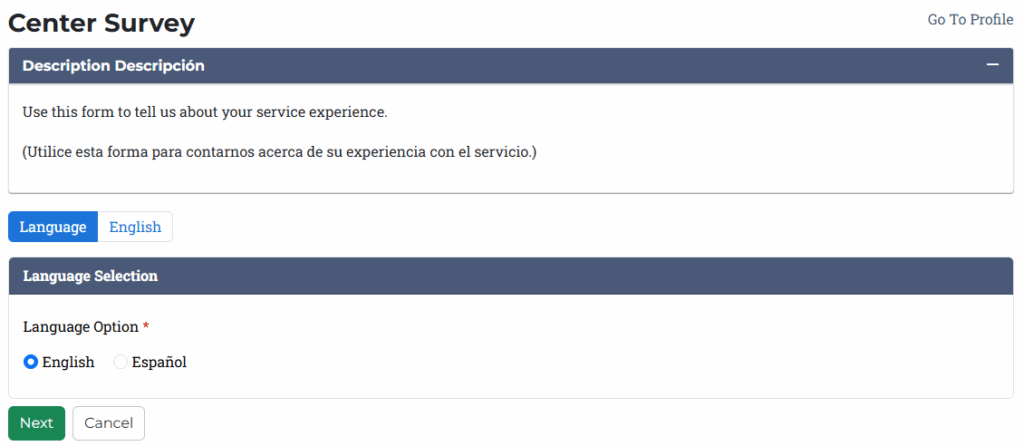Contents
The early days of the COVID-19 pandemic forced agencies to provide remote, contactless citizen services—quickly. “Building the airplane in the air” got the job done admirably under tough circumstances.
But it didn’t always lead to the most user-friendly digital experiences for citizens.
Why does it matter? Good citizen experiences:
- Reduce help desk tickets and phone calls
- Improve your agency’s reputation
- Justify funding for further technological advancements
- Show that you’re an innovative leader capable of steering your agency through the digital age
A recent Deloitte survey showed that 62% of people are satisfied or very satisfied with online government services. That could be a lot worse! But it still represents a big gap compared to the 81% of people who are satisfied with online private sector services.
This post will explore how you can make your online services more citizen-friendly.
You will learn:
- How to make digital services more accessible and equitable
- Key strategies to safeguard users’ privacy and security
- Best practices for keeping information up-to-date and transparent
1. Prioritize Digital Equity
Deloitte shows big demographic gaps in who currently accesses digital government services. Those who do are more likely to be:
- Younger
- Higher income
- Urban
- Employed
- More educated
- White
But what about those who are in one or more less-privileged categories? To make sure they can access your services, you should prioritize:
Make Content Accessible
Making your services accessible to those with disabilities is not only the right thing to do—it’s also required by law. Under the Americans with Disabilities Act (ADA), government digital services must adhere to the Web Content Accessibility Guidelines (WCAG).
Clarify Jargon
Use clear and straightforward language without technical jargon and government-specific terms. This is helpful for those with lower literacy levels, or anyone who isn’t familiar with complex bureaucratic language.
Sometimes, content like legal disclaimers requires specific, complex language. In that case, find a way to clarify the meaning by paraphrasing or including a glossary.
Meet “Karrie”

- 45 years old
- High school diploma
- Works in customer service for a big box store, but dreams of opening a shop to sell her handmade jewelry
Karrie goes to your website to find out how to start the process of getting a business license. But she’s confused by terms like:
- “assumed name”
- “unincorporated assumed name certificate”
- “disposition of interest”
Help Karrie start her business by including a plain-language glossary and clear, step-by-step instructions.
Provide Translations
Be sure to consider immigrant communities and linguistic minorities. The more of your digital content you can translate into the major languages of your community, the better. At the very least, information such as emergency alerts and voter registration should be provided in multiple languages.

In-Person and Paper-Based Alternatives
Despite advances in digital technology, not everyone can or chooses to interact online. Approximately 13% of citizens report lacking internet knowledge to utilize digital services effectively, while 12% face barriers due to limited internet access. Maintaining in-person services and paper-based alternatives ensures that these individuals are not excluded from essential government services.
Meet “Bert”

- 74 years old
- Doesn’t have a smartphone
- Has a computer but his wife was the only one who knew how to use it, and she’s passed on
- Wants to know about a development that’s being proposed near his home
Make sure Bert has a way to file a public records request in person and get back printed documents.
2. Optimize for Mobile Devices
Data that our clients have shared from Google Analytics shows that approximately half of local government website visits were on mobile devices. With most Americans now owning smartphones, the amount of traffic from these devices will likely only go up!
To increase citizen satisfaction with mobile services, you should:
Simplify Navigation and Functionality
Make your mobile website intuitive and easy to navigate. Simplify the interface and reduce the steps needed to complete actions. Menus should be concise, and key information should be accessible within one or two taps. Don’t forget to design mobile-friendly forms for quick, typo-free input.
Ensure Speed and Reliability
Optimize sites and citizen-facing apps for quick loading times and ensure they operate smoothly across various devices and network conditions. Your citizens expect a seamless experience, whether filing a document, paying fees, or accessing vital information.
3. Enhance Cybersecurity
US News says that 65% of Americans are concerned about a cyberattack in the US. And it’s easy to see why. The Nationwide Cybersecurity Review showed that state and local governments faced 148% more malware attacks and 51% more ransomware incidents in 2023 than in 2022.
Citizens need assurance that their data is safe. That means you should:
Secure Servers and Infrastructure
Start by securing your servers and IT infrastructure against potential attacks. This includes employing firewalls, intrusion detection systems, and comprehensive malware protection to shield your data and systems from unauthorized access and cyber threats.
Encrypt Data
Encrypt all sensitive data both at rest and in transit. Encryption transforms readable data into a secure code, which can only be decoded with a specific key. Encrypting data ensures that even if information is intercepted, it remains protected from bad actors.
Implement Strong Authentication Processes
Implement strong authentication processes to verify the identity of users accessing your online services. This can include:
- Multi-factor authentication (MFA)
- Single sign-on (SSO)
- Requring passwords to be reset every three months
Continuously Train Staff
Cybersecurity is not just a technical issue; it’s also about human behavior. 90% of cyberattacks result from phishing, in which an employee unintentionally provides sensitive information, such as passwords, to a malicious actor. Regular training for your staff on the latest security practices and potential phishing attacks can significantly reduce the risk of breaches.
4. Provide Transparency
Providing clear, accessible information about government operations online builds trust with citizens. This section outlines how your agency can excel at transparency, ensuring that citizens feel informed and respected in their interactions with your services.
Government Processes
Openly share information on government operations such as budget allocations, spending, city council decisions, and legislative processes. Make these documents easily accessible on your website. Consider using infographics or brief summaries to explain complex financial data or policy decisions. Regular updates, including live-streamed city council meetings or public forums, enhance transparency and encourage public participation. While citizens have a right to access this information via a records request, the best practice is to proactively make as much information as possible publicly available.
Data Usage
The Pew Research Center reports that 71% of Americans are “very” or “somewhat concerned” about how the government uses their personal data. Provide a clear privacy policy and consent forms on all digital platforms so that citizens understand how you use their data. The California Department of Motor Vehicles (DMV) provides a detailed policy that you can use as a model. Of course, information should be updated for your organization’s data use needs and applicable state laws.
Status of Requests
When citizens interact with your agency—whether through a public records request, a permit application, a code violation report, or anything else—make sure you keep them in the loop. The MCCi Community Development portal provides residents with automatic updates about cases that involve them. This gives them peace of mind that their request is moving through the system and that you’re doing your best to resolve it as quickly as possible.
Meet “Alex”
- Age 44
- Lives in a midsized coastal town in Florida
- Home sustained damage during a hurricane, needs a new roof
- Submitted a building permit application through MCCi Community Development

Alex doesn’t have to call your office for updates because he can see the status of his request in his MCCi profile.
5. Keep Information Up to Date and Consistent
Information available on your digital platforms should be current and reliable. Accurate information supports the effective delivery of services and builds trust among citizens who depend on you for important decisions.
Outdated information could have consequences ranging from annoying to severe:
- Confusion resulting from not knowing the current library hours
- Barring citizens from exercising their right to vote
- Threatening life or property in a natural disaster
Make sure your residents have access to the most up-to-date information by:
Performing Regular Updates
You should establish a routine for regularly updating content across all digital platforms. This includes emergency alerts, public transit schedules, and service availability, which can change frequently and require immediate attention.
Integrating Your Information Sources
Government websites often contain multiple sections where the same information can be found. While that’s not necessarily a bad thing, it can lead to inconsistencies if one section is updated while others aren’t. Integrate your content management systems so that a single update populates all relevant areas simultaneously.
Automating Updates Where Possible
Consider implementing automation tools to help manage updates more efficiently. For example, if you have social media accounts that announce service changes, these can be set up to push updates to your website automatically. Integrating other systems helps to provide the most accurate information as well. For instance, residents in Weatherford, Texas, access real-time data about contractor licenses through the MCCi Community Development integration with Texas’ contractor database.

Contact Us
If you’re looking to implement these strategies effectively and create online services that truly meet the needs of your community, partner with MCCi. With our robust Content Management System, we develop accessible, user-friendly government websites and systems for licensing, permitting, code enforcement, and other citizen-facing services (plus backend workflows that make handling cases simpler than ever for your agency).
Contact MCCi today to learn how we can help you improve your digital services and enhance citizen satisfaction.

